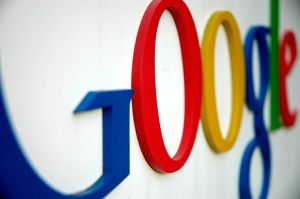Google Advances Fight Against Piracy
Google just announced that it has made significant progress in tackling copyright infringement online.
In April, Google settled copyright infringement claims brought by music publishers over the unauthorized use of music videos on the company’s YouTube website. The settlement allows music publishers to form licensing agreements with YouTube and to receive royalties. Music publishers and songwriters had complained that they have seen incomes decline because music fans download songs for free on the internet instead of buying compact discs.
As a result of the music publishers suit, and others, Google promised last December that it would attack the problem in four key areas. “We’ve made considerable progress on each front, and we will continue to evolve our efforts in all four areas in the months to come,” according to a post the company made to its public policy blog Friday evening.
Starting with Blogger and Web Search, Google says it has built tools to make it easier and faster for rights-holders to submit Digital Millennium Copyright Act (DMCA) takedown requests. Federal law requires web sites, like Google’s YouTube, to remove items suspected of containing copyrighted material in a timely manner if they do not want to be held responsible for distributing pirated content. “We built tools earlier this year, and they are now being successfully used by more than a dozen content industry partners who together account for more than 75 percent of all URLs submitted in DMCA takedowns for Web Search,” the blog states. Google says its responds to requests from these content partners in less than 24 hours.
While Google states that it has always prohibited the use of its AdSense program on web pages that provide infringing materials, and terminated publishers who violated the policy, the company is now working to improve internal enforcement procedures. Google touts that it became one of the first companies to complete the Interactive Advertising Bureau’s (IAB) Quality Assurance Certification program, through which participating advertising companies take steps to enhance buyer control over the placement and context of advertising and build brand safety. “In addition, we have invited rights-holder associations to identify their top priority sites for immediate review, and have acted on those tips when we have received them.”
Google also launched “Music Rich Snippets,” a program that allows legitimate music sites, including Rhapsody and MySpace, to highlight content in snippets that appear in Google’s Web Search results. The company says it hopes other authorized music sites and search engines take advantage of ‘Music Rich Snippets’ to make their preview content stand out in search results.
Finally, Google has taken steps to improve the prevention of terms that are closely associated with piracy from appearing in Autocomplete, a feature that predicts queries based on popular searches from users.
The four initiatives are central to Google’s work in combating piracy, but the company strives to make improvements in other areas, it says. For example, the internet giant has expanded its movie rental services on YouTube and launched the Google eBookstore, featuring a wide array of books from authors and publishers. Google is also working to continue improving YouTube’s Content ID system, which helps copyright owners (including song writers and music publishers) to monetize their works. Google is also working with the World Intellectual Property Organization (WIPO) on a rights registry that will help African musicians license their works.
“We continue to believe that making high-value content available in authorized forms is a crucial part of the battle against online infringement,” Google’s blog post states.



SEO Services
I’m hearing that the British government in the person of Jeremy Hunt are trying to insist Google de-indexes entire sites accused of copyright infringement. This is bullshit – all the government’s doing is paving the way to demand the closing of all and any site critical of government. It would be an end to free speech on the Internet.